- Home
- Penny Jordan
Second-Best Husband Page 2
Second-Best Husband Read online
Page 2
‘I envy you, Margaret, but I don’t think…’
‘Listen to me. You and I are very much alike in many ways. Stop wasting your life on a man who you can’t have and who would hurt you badly if you could. Don’t spend the rest of your life weeping tears of regret. Decide what it is you really want. Use this time with your parents at home to think about the things which are really important to you. All right, so you may decide that I’m wrong, that a husband, a home, a family aren’t the things you want enough to put aside your dreams of falling in love, of being in love for. But on the other hand you might find you make some surprising discoveries about yourself and about your true needs.’
As Sara turned off the motorway and took the familiar route homewards, she found herself turning over in her mind what Margaret had said to her. A home…children… Yes, these were things she had always wanted. Despite her decision to move to London, to carve a life for herself as a career woman in the big city, at heart she had remained the small-town girl she had been born. She had enjoyed her years in London, but in her heart of hearts she had never believed they would be anything other than a busy interlude between her childhood and her eventual role as a wife and mother.
Every time she saw her parents, every time she saw her sister, she was reminded of her most basic needs and how her life was stifling them. How it was stifling her. But she hadn’t been able to bring herself to break away from Ian… She had refused to make herself face up to the truth: that there never was going to come a day when he would turn to her, look at her…take her in his arms. She was twenty-nine years old. Not old by any means, but no longer young enough to deceive herself with such silly daydreams. She thought of the men who had asked her out over the years, kind, pleasant men, but just men when compared with Ian, with her love, her adoration…her compulsive worship of him. Men whom she had refused, ignored, forgotten… Men with whom, according to Margaret, she could easily have been happy and fulfilled…men with whom she could have had children. Children who would have given her so much joy—children who would have made her forget Ian? Impossible, surely…or was it simply that she did not want to allow herself to forget him; that she was so conscious of the fact that she had wasted so much of her life, given up so much, to maintain her devotion to him, that her pride, her stubbornness, would not allow her to admit that she had made a mistake, had behaved in a stupid blinkered fashion? But now that she was being forced into separating her life from his…now that she…
She moved restlessly in her seat. Her back was beginning to ache from the long drive. She was glad that it was almost summer and the evenings light enough to allow her to complete her journey before it grew dark.
Her expression softened into one of warm affection as she thought about her parents. Her father was retired now. He and her mother still lived in the house where she and her sister had grown up, though. Two miles outside the village, it stood alone, halfway down a lane which led eventually to the Jacobean manor house whose home farm it had once been.
The manor house had been empty for several years, the old man who had owned it having died and there being no direct heir, nor apparently anyone interested in purchasing such a rambling and derelict property so far off the beaten track. But when she had last been home at Christmas—Ian had booked a skiing holiday in Colorado for Christmas and the New Year, and so there had been nothing to tempt her to stay in London, even if she could have brought herself to disappoint her parents and break with family tradition by doing so—her mother had told her excitedly that the house had at last been sold. The man who had bought it was some sort of tree expert with the Forestry Commission who had now decided to branch out into a business of his own, growing and selling not only rare specimen trees, but also many native broadleaved trees, for which apparently there was a growing market both at home and abroad in these environmentally aware days.
Her parents had only met their new neighbour briefly, but Sara had gained the impression that her mother had rather taken him to her heart.
‘All on his own living in that great draughty place,’ was what she had said at Christmas, adding that she had invited him to join them for Christmas Day, but that he had apparently already made arrangements to spend the holiday with friends in the north-east of the country.
‘He’s not married, and has no family to speak of. Both his parents are dead, and his brother lives in Australia.’
How like her mother to wheedle so much information out of a stranger so very quickly, Sara reflected fondly. Not out of nosiness; her mother wasn’t like that. She was one of those people who was naturally concerned for and caring about her fellow man.
What would she have made of Ian had Sara ever taken him home? It came to her with a small unpleasant jolt of surprise that she knew without even having to consider the matter that her parents would not have taken to Ian; that he in turn would have treated them with that slightly disdainful contempt she had seen him use to such effect with anyone he considered neither important enough nor interesting enough to merit his attention.
She bit her lip, worrying at it without realising what she was doing.
But Ian wasn’t really like that. He was fun, clever, quick-witted…not…not shallow, vain and self-important. Or was he? Had she in her love for him been guilty of wearing rose-coloured glasses, of seeing in him the qualities she wanted to see and ignoring those which reflected less well on him, which actually existed?
If he was really the man she had wanted to believe he was, had allowed herself to believe he was, would he have been attracted to a woman like Anna, outwardly attractive in an obvious and rather overdone sort of way, but inwardly…?
Sara bit her lip again. She had no right to criticise Anna just because she… No doubt Ian saw a side of her that wasn’t discernible to her, another woman…a woman moreover who loved him. Jealousy wasn’t an attractive emotion, and she was hardly an impartial critic, she reminded herself sternly. And, anyway, what did it matter what she thought of Anna? Ian loved her. He had told her so himself.
Her body tensed as she remembered that awful day. A Monday morning. Ian had been away for the weekend to stay with ‘friends’. To stay with Anna, she had realised later. He had arrived halfway through the morning glowing with enthusiasm and excitement.
It had happened at last, he had told Sara exuberantly. He had at last met the woman with whom he wanted to spend the rest of his life…a woman like no other…
She remembered how she had listened, sick at heart, her body still as she forbade it to reveal the anguish she was suffering, her face averted from him as she fought to control her shock, her pain.
And then, when she had actually met Anna for the first time, she had realised what a fool she had been to ever imagine that Ian might come to love her. She and Anna were so completely different from one another. She was tall and slim, thin almost; Anna was shorter, and all voluptuous curves. She was shy, withdrawn almost, quiet and rather reserved; Anna was a self-publicist with no inhibitions about singing her own praises, advancing her own talents.
Where she preferred restraint, quiet clothes in classic colours and styles, Anna wore the kind of expensive designer outfits calculated to draw people’s attention.
Watching the way Ian looked at her, seeing the desire, the admiration in his eyes as he followed Anna’s every movement, Sara had recognised how truly foolish she had been in ever allowing herself to hope that there might come a day when Ian would turn to her, would look at her.
She was simply not his type. Oh, he might like her…he might praise her work, he might even flatter her as he had done over the years…and she might have been silly enough to use that flattery to build herself a tower of hope that any sensible woman would soon have realised had no foundation at all; but the reality was that, whether Anna had arrived in his life or not, Ian would never have found her, Sara, desirable.
Face it, she derided herself bitterly now. You just aren’t the kind of woman that men do desire.
She r
emembered how often her sister had teased her about her aloofness, had told her that she ought to relax more, have fun… ‘You always look so prim and proper,’ Jacqui had told her. ‘So neat and perfect that no man would ever dare to ruffle your hair or smudge your lipstick.’
She had wanted to protest then that that wasn’t true, but had been too hurt to do so. It wasn’t her fault if she wasn’t the curly, pretty, vivacious type.
She cringed inwardly, remembering how Anna had mocked her, telling her, ‘Honestly, you’re unbelievable. Quite the archetypal frustrated spinster type, dotingly in love with a man she can never have. I suppose you’re still even a virgin. Ian thinks it’s a huge joke, a woman of your age who hasn’t had a lover; but then, as he said, what red-blooded man would want you?’
Anna had smiled a cruel little smile as she casually threw these comments to her, malice glinting in her light blue eyes as they focused on Sara’s pale, set face.
Now, as she recalled her comments, Sara’s hands tightened on the steering-wheel, her knuckles gleaming white with tension. Up until this moment, she hadn’t allowed herself to think about that. To think about Anna and Ian— Ian whom she had loved so much and for so long—laughing about her, making fun of her.
She shuddered sickly, a rigour of tension and pain, and yet in the middle of her anguish there was still room for a small, cold voice that asked why, when she had had such a high opinion of Ian, she was not immediately and instantly rejecting the very idea that he would be so cruel, so callous about anyone? Never mind about her, someone whom he had known for so long, someone whom he had claimed to admire and care about.
She could accept that he couldn’t love her; why should he? Love wasn’t something that could be summoned on demand, nor banished equally easily, as she had good cause to know; but surely the Ian she had admired and liked so much, the Ian she had thought she had known so well, would never, ever have made fun of her, laughed so cruelly and tauntingly about her with anyone, even if that person was the woman he was going to marry. Surely the Ian she had thought she had known would have had the consideration, the kindness, the sheer compassion for even those members of the human race who were not known to him personally not to be able to entertain such small-mindedness.
The Ian she had thought she had known, even if he had known about her feelings, her love, would never have been able to behave in the way that Anna had described to her, and yet, when Anna had thrown her taunts at her, instead of immediately and automatically being able to rebuff them as being totally unworthy of Ian, totally impossible for a man of his calibre, all she had been able to do was to stand there sickly acknowledging the extent of her own folly, her own self-deceit.
And yet even now it wasn’t Ian she hated. It wasn’t Ian she despised.
No, those bitter, acid emotions were reserved for herself. Which was why she had had to come away. She dared not allow herself to weaken, to become even more foolish and contemptible by staying in London where it would be all too fatally easy to find some excuse to make contact with Ian…some excuse…any excuse…and she wasn’t going to allow that to happen. Dared not allow that to happen.
Thank goodness she had her parents to come home to. They knew nothing about her feelings for Ian; her mother always asked her about her life in London, about whether or not she had met ‘anyone special’, and Sara knew how disappointed she was that she too hadn’t married and had children, like her sister—not because she wanted more grandchildren but because she knew how much Sara herself loved them.
She glanced at her watch. Soon she would be home. Only another few miles to Wrexall, the village where she had been brought up. She loved this part of the country with its rolling hills, its views of the distant Welsh borders. Ludlow with its historic past wasn’t very far away, and she had grown up on the legends and myths of the countryside’s old and bloody history.
Until his retirement, her father had been a partner in a solicitors’ practice in Ludlow. It had been working in his office in the school holidays which had first given her the enthusiasm to train as a secretary. Her original ambition had been to perfect her languages and then to work abroad, possibly in Brussels, but then she had met Ian and everything had changed, and it was too late now to wonder what her life might have been if their paths had never crossed.
As she drove through the quiet village it was just growing dusk, lights coming on in the cottages that lined the road.
An anticipatory feeling warmed her heart, momentarily dispelling the aching coldness which had invaded it recently. No matter how mature she was supposed to be, she had never lost the feeling of happiness she always experienced at coming home.
Not even working for Ian had totally compensated her for seeing so little of her parents, her sister, her old friends—although most of her school-friends had moved away now; this part of the country couldn’t provide them with the means to earn a satisfactory living. And her sister had moved away as well. She and her husband now lived in Dorset.
As she turned off the main road and into the lane that led to her parents’ house, she felt her eyes sting a little. Heavens, the last thing she wanted to do was to break down in tears the moment she saw her parents. If she did that, her mother was bound to guess that something was wrong. She might have come home to lick her wounds, so to speak, but she fully intended to lick them in private.
She turned in through the open gates and drove up to the house, frowning a little as she saw that no lights were on, and then shrugging to herself. Her parents were probably in the kitchen. Her mother would be preparing supper and her father would be sitting at the kitchen table reading his evening paper.
Smiling to herself, she stopped her car and got out, hurrying down the side of the house.
However, when she turned the corner, there was no light on in the kitchen, no sign of life anywhere, and, worse, the garage door was open and her parents’ car was missing.
Could they perhaps have gone shopping? She frowned to herself, chewing on her bottom lip. Unlikely, surely…
She was just beginning to wonder where on earth they could be when she heard the sound of a car coming up the lane.
However, as she hurried back to the front of the house, her relief evaporated as she saw that the vehicle which was now stationary at the bottom of the drive wasn’t her parents’ sedate saloon car, but a battered Land Rover.
The man swinging himself out of it was unfamiliar to her. Tall and powerfully built, with thick dark hair which looked as though it was overdue for a cut, he was frowning as he saw her.
He was wearing a pair of faded, worn jeans, ripped over one knee, and an equally ancient checked shirt. His Wellington boots were muddy and so were his hands, Sara noticed as he came towards her and told her, ‘If you’re looking for the Brownings, I’m afraid you’re out of luck. They’ve gone to Dorset. Apparently their daughter went into premature labour late yesterday afternoon, and their son-in-law asked if they could possibly get down there to help out…’
He stopped abruptly, his frown deepening as he demanded, ‘You aren’t going to faint, are you?’
Faint? Her? Sara have him a quelling, icy look. Never in her life had anyone accused her before of looking like the kind of woman who was likely to faint. In any other circumstances she might almost have found the fact that he had so obviously misjudged her slightly amusing. Men usually found her efficiency, her self-sufficiency rather off-putting, and the suggestion that he considered her weak and vulnerable enough to resort to something so ridiculously Victorian as fainting simply because her parents weren’t here made her reflect inwardly that, whatever else this man was, he was certainly no expert on the female sex.
‘No, I’m not going to faint,’ she told him crisply. ‘I was just rather shocked to discover that my parents aren’t here.’
‘Your parents!’ He had been about to turn away, but now he swung round again and studied her with open curiosity. ‘You’re Sara!’ he pronounced at last, looking at her with such obvious
bewilderment that Sara wondered what on earth he had been told about her to make him view the reality of her with so much obvious disbelief.
‘Yes, I’m Sara,’ she agreed coolly, and then, remembering that she was back home now and not in London and that there was no need for her to be defensive and withdrawn, and moreover that this man was obviously well known to her parents, she added, ‘And you must be…’
‘Stuart Delaney,’ he told her, extending his hand, and then withdrawing it as they both looked at the mud encrusting it. ‘I’ve just been heeling in some young trees. I was on my way back home to get cleaned up when I saw your car. I knew your folks were away and so I thought I’d better just stop and take a look. Did they know you were…?’
Sara shook her head.
‘No, I…’ She broke off, unwilling to explain that her return home had been an impulse decision.
So this was her parents’ new neighbour, the man who had bought the old manor house. He was younger than she had expected, somewhere in his early thirties, she judged, a tough-looking individual and yet one who evidently had far more neighbourliness in him than his appearance had led her to suspect, if he had been concerned enough to stop and see who was visiting her parents’ home.

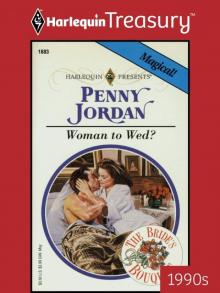 Woman To Wed?
Woman To Wed? Wanting
Wanting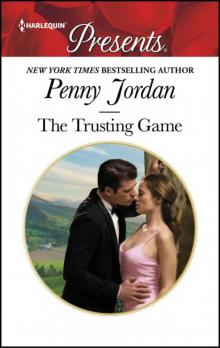 The Trusting Game (Presents Plus)
The Trusting Game (Presents Plus)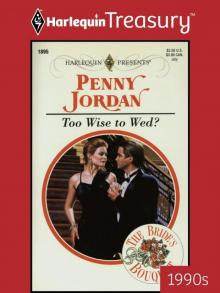 Too Wise To Wed?
Too Wise To Wed?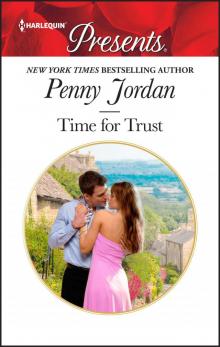 Time for Trust
Time for Trust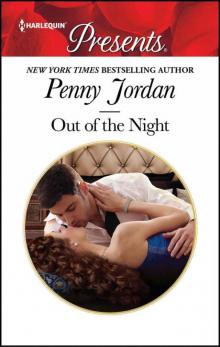 Out 0f The Night (HQR Presents)
Out 0f The Night (HQR Presents) Dangerous Interloper (Lessons Learned II Book 8; HQR Presents Classic)
Dangerous Interloper (Lessons Learned II Book 8; HQR Presents Classic) Best Man To Wed?
Best Man To Wed? They're Wed Again
They're Wed Again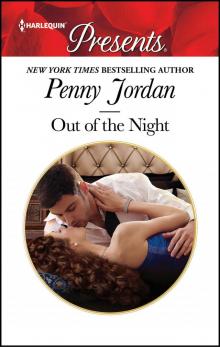 Out of the Night
Out of the Night An Innocent's Surrender
An Innocent's Surrender Marriage: To Claim His Twins
Marriage: To Claim His Twins Deal With the Devil--3 Book Box Set
Deal With the Devil--3 Book Box Set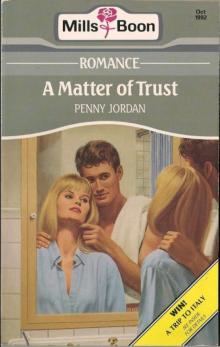 Matter of Trust
Matter of Trust Vacation with a Commanding Stranger
Vacation with a Commanding Stranger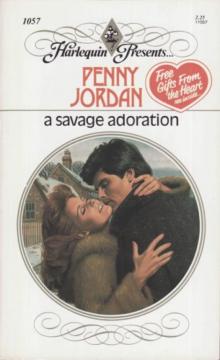 A Savage Adoration
A Savage Adoration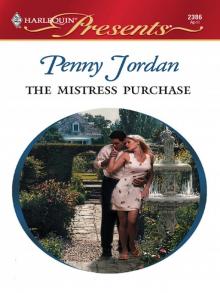 The Mistress Purchase
The Mistress Purchase Reclaimed by the Ruthless Tycoon
Reclaimed by the Ruthless Tycoon The Tycoon's Forbidden Temptation
The Tycoon's Forbidden Temptation Sinful Nights: The Six-Month MarriageInjured InnocentLoving
Sinful Nights: The Six-Month MarriageInjured InnocentLoving Bedding His Virgin Mistress
Bedding His Virgin Mistress Escape from Desire
Escape from Desire Claiming His Shock Heir
Claiming His Shock Heir Stronger than Yearning
Stronger than Yearning Return of the Forbidden Tycoon
Return of the Forbidden Tycoon Mission: Make-Over
Mission: Make-Over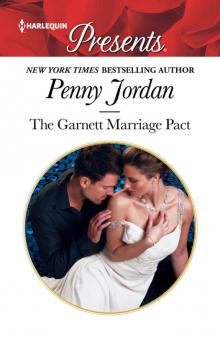 The Garnett Marriage Pact
The Garnett Marriage Pact Wanting His Child
Wanting His Child A Little Seduction Omnibus
A Little Seduction Omnibus The City-Girl Bride
The City-Girl Bride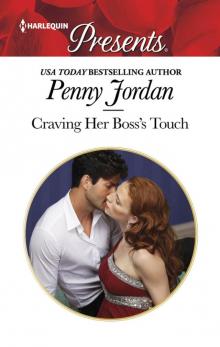 Craving Her Boss's Touch
Craving Her Boss's Touch Starting Over
Starting Over Phantom Marriage
Phantom Marriage The Italian Duke's Virgin Mistress
The Italian Duke's Virgin Mistress One Night in His Arms
One Night in His Arms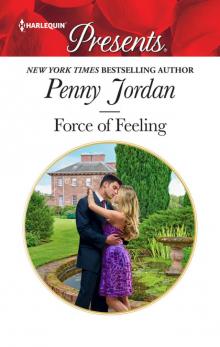 Force of Feeling
Force of Feeling Forbidden Loving
Forbidden Loving For Better for Worse
For Better for Worse Silver
Silver Rival Attractions & Innocent Secretary...Accidentally Pregnant
Rival Attractions & Innocent Secretary...Accidentally Pregnant A Bride for His Majesty s Pleasure
A Bride for His Majesty s Pleasure Desire's Captive
Desire's Captive Forgotten Passion
Forgotten Passion Taken Over
Taken Over Taken by the Sheikh
Taken by the Sheikh Sicilian Nights Omnibus
Sicilian Nights Omnibus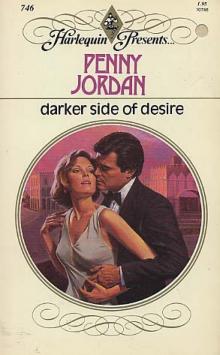 Darker Side Of Desire
Darker Side Of Desire A Royal Bride at the Sheikh s Command
A Royal Bride at the Sheikh s Command The Ultimate Surrender
The Ultimate Surrender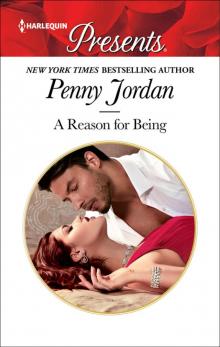 A Reason for Being
A Reason for Being A Cure for Love
A Cure for Love Bought with His Name & the Sicilian's Bought Bride
Bought with His Name & the Sicilian's Bought Bride Marriage Make-Up & an Heir to Bind Them
Marriage Make-Up & an Heir to Bind Them Bitter Betrayal
Bitter Betrayal Captive At The Sicilian Billionaire’s Command
Captive At The Sicilian Billionaire’s Command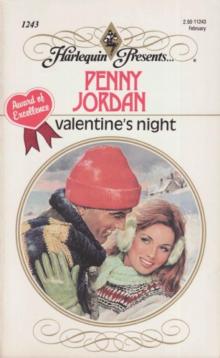 Valentine's Night
Valentine's Night The Convenient Lorimer Wife
The Convenient Lorimer Wife Reawakened by His Touch
Reawakened by His Touch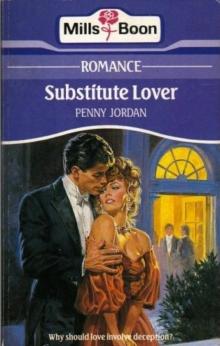 Substitute Lover
Substitute Lover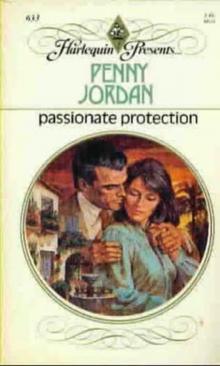 Passionate Protection
Passionate Protection The Hidden Years
The Hidden Years So Close and No Closer
So Close and No Closer Passion and the Prince
Passion and the Prince Virgin for the Billionaire's Taking
Virgin for the Billionaire's Taking Cruel Legacy
Cruel Legacy Payment in Love
Payment in Love The Wealthy Greek's Contract Wife
The Wealthy Greek's Contract Wife Penny Jordan Collection: Just One Night
Penny Jordan Collection: Just One Night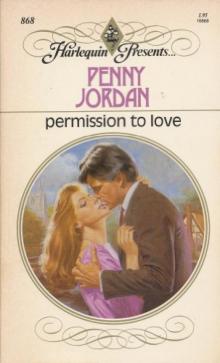 Permission to Love
Permission to Love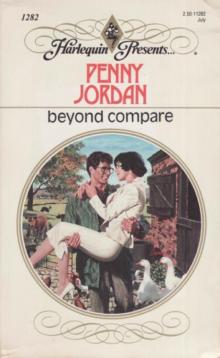 Beyond Compare
Beyond Compare When the Magnate Meets His Match
When the Magnate Meets His Match A Time to Dream
A Time to Dream Christmas Nights
Christmas Nights Christmas with Her Billionaire Boss
Christmas with Her Billionaire Boss The Sheikh's Baby Omnibus
The Sheikh's Baby Omnibus The Tycoon's Virgin
The Tycoon's Virgin Falcon's Prey
Falcon's Prey Mistress Of Convenience
Mistress Of Convenience The Perfect Father
The Perfect Father Stranger from the Past & Proof of Their Sin
Stranger from the Past & Proof of Their Sin A Little Revenge Omnibus
A Little Revenge Omnibus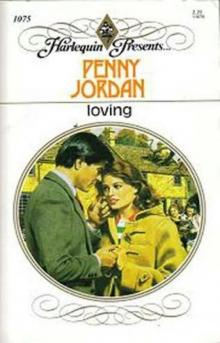 Loving
Loving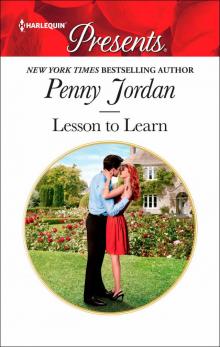 Lesson to Learn
Lesson to Learn Second Chance with the Millionaire
Second Chance with the Millionaire Payment Due
Payment Due A Secret Disgrace
A Secret Disgrace Conveniently His Omnibus
Conveniently His Omnibus An Unforgettable Man
An Unforgettable Man The Tycoon She Shouldn't Crave
The Tycoon She Shouldn't Crave Pride & Consequence Omnibus
Pride & Consequence Omnibus The Dutiful Wife
The Dutiful Wife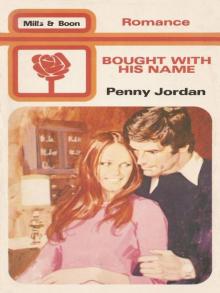 Bought With His Name
Bought With His Name The Friendship Barrier
The Friendship Barrier High Society
High Society The Price of Royal Duty
The Price of Royal Duty A Scandalous Inheritance
A Scandalous Inheritance At His Convenience Bundle
At His Convenience Bundle The Blackmail Baby
The Blackmail Baby Prince of the Desert
Prince of the Desert A Sudden Engagement & the Sicilian's Surprise Wife
A Sudden Engagement & the Sicilian's Surprise Wife Unexpected Pleasures
Unexpected Pleasures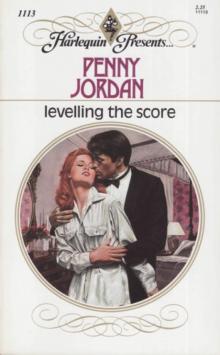 Levelling the Score
Levelling the Score Savage Atonement
Savage Atonement Dangerous Interloper
Dangerous Interloper A Passionate Awakening
A Passionate Awakening Ruthless Passion
Ruthless Passion Time Fuse
Time Fuse Past Passion
Past Passion Her One and Only
Her One and Only The Innocent's Secret Temptation
The Innocent's Secret Temptation A Stormy Spanish Summer
A Stormy Spanish Summer The Marriage Demand
The Marriage Demand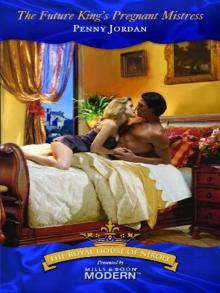 Future King's Pregnant Mistress
Future King's Pregnant Mistress Unwanted Wedding
Unwanted Wedding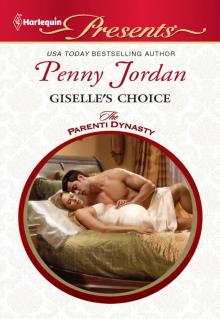 Giselle's Choice
Giselle's Choice Now or Never
Now or Never Blackmailed by the Vengeful Tycoon
Blackmailed by the Vengeful Tycoon Lovers Touch
Lovers Touch Scandalous Seductions
Scandalous Seductions The Power of Vasilii
The Power of Vasilii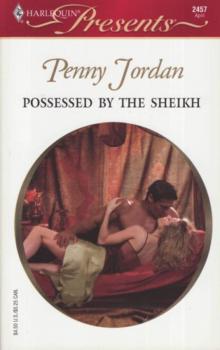 Possessed by the Sheikh
Possessed by the Sheikh It Happened At Christmas (Anthology)
It Happened At Christmas (Anthology) The Perfect Lover
The Perfect Lover The Flawed Marriage
The Flawed Marriage The Greek's Runaway Bride
The Greek's Runaway Bride An Unbroken Marriage
An Unbroken Marriage Hired by the Playboy
Hired by the Playboy The Blackmail Marriage
The Blackmail Marriage Daughter of Hassan
Daughter of Hassan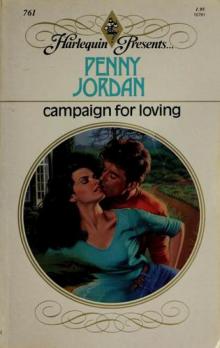 Campaign For Loving
Campaign For Loving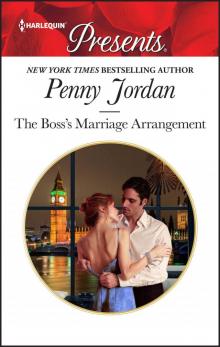 The Boss's Marriage Arrangement
The Boss's Marriage Arrangement Seduced by the Powerful Boss
Seduced by the Powerful Boss Marriage Without Love & More Than a Convenient Marriage?
Marriage Without Love & More Than a Convenient Marriage?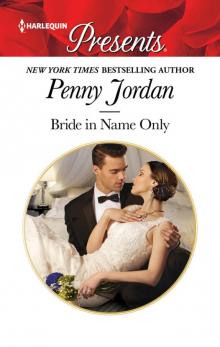 Bride in Name Only
Bride in Name Only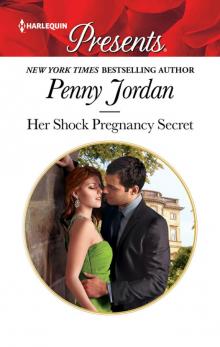 Her Shock Pregnancy Secret
Her Shock Pregnancy Secret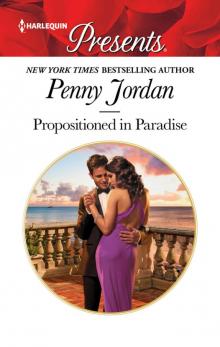 Propositioned in Paradise
Propositioned in Paradise The Only One
The Only One The Sicilian s Baby Bargain
The Sicilian s Baby Bargain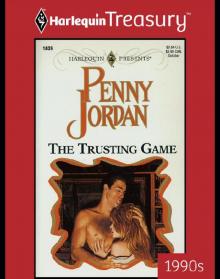 The Trusting Game
The Trusting Game The Most Coveted Prize
The Most Coveted Prize One-Click Buy: September Harlequin Presents
One-Click Buy: September Harlequin Presents In Her Enemy's Bed
In Her Enemy's Bed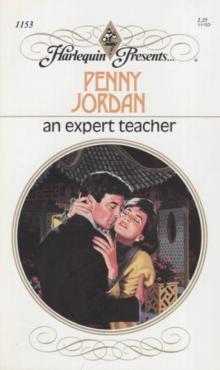 An Expert Teacher
An Expert Teacher A Rekindled Passion
A Rekindled Passion The Reluctant Surrender
The Reluctant Surrender Shadow Marriage
Shadow Marriage A Scandalous Innocent
A Scandalous Innocent Forbidden Kisses with the Boss
Forbidden Kisses with the Boss Bound Together by a Baby
Bound Together by a Baby Second-Best Husband
Second-Best Husband Response
Response His Untouched Bride
His Untouched Bride A Kind of Madness
A Kind of Madness Past Loving
Past Loving His Blackmail Marriage Bargain
His Blackmail Marriage Bargain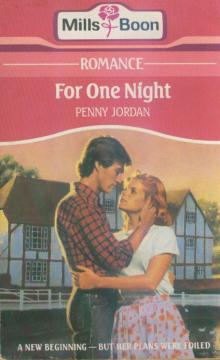 For One Night
For One Night Legally His Omnibus
Legally His Omnibus Back in the Marriage Bed
Back in the Marriage Bed Man-Hater
Man-Hater